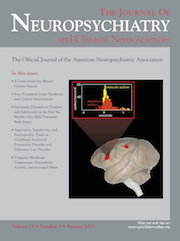The title of this work might suggest that it is intended for a rather limited audience of specialists within the area of forensic neuropsychology, but it is, in fact, a rich source of information of use to any practicing psychiatrist or psychologist. The two dozen contributors to this volume, from Canada and the United States, all experts in the field, have provided the first textbook dedicated specifically to pediatric forensic neuropsychology. Of course, Pediatric Forensic Neuropsychology is about children and adolescents, but the principles outlined and the provided “toolbox” of templates for communication with attorneys, parents, and teachers, have general applicability.
There is no way for a practicing physician or psychologist to avoid some contact with the legal system. Eventually, all practicing physicians or psychologists will have a patient who needs a report for disability determination, competence to make a will or enter a contract, damages for compensation, health insurance claims, child custody cases, or educational entitlements; or, more rarely, in the case of alleged criminal acts, you may be called upon to give an opinion regarding insanity, diminished capacity, mental retardation, or mitigating factors. One need not be a forensic specialist to receive a subpoena for records, a deposition, or courtroom testimony. In the course of evaluating or treating patients, most practitioners will also be exposed to the results of psychological and neuropsychological testing reports. A basic understanding of evidence-based assessment and statistical reasoning, the difference between likely, probable, and certain, in statements of causation, and the meaning of legal terms of art have become necessary in this litigious age.
This excellent reference of 368 pages may be compared with the 930 pages of Psychological Evaluations for the Courts, 3rd Edition, by Gary B. Melton, John Petrila, Norman G. Poythress, et al. (Guilford, 2007), which touches on many of the same issues, but from a legal standpoint, rather than as a manual for everyday use, or the 864 pages of Forensic Psychiatry: Clinical, Legal and Ethical Issues (Butterworth-Heinemann VL, 1993; 2nd edition to be published in 2013), an encyclopedic compendium geared to courtroom testimony in the British system. Pediatric Forensic Neuropsychology fills the niche between these books and standard texts of pediatric neuropsychology.
It has become increasingly apparent that the biological basis of most psychiatric conditions has a developmental origin that may begin at conception, or even before (if the genetic endowment is considered). It is no longer a question of “nurture or nature” in etiology, but the degree of interaction and the influence of agents or events at critical periods in growth and development. Recent work in epidemiology has modified the concept of a stable diagnosis and has emphasized the importance of phenomenological description, rather than cookie-cutter diagnosis or the constantly-evolving DSM categories. It is, therefore, very useful to have a textbook like this one that may help shape clinical work to a standard that will stand up in court. Of course, every report generated in the usual course of practice should be able to withstand the scrutiny of testimony under oath, because you never know when you may need to defend your work in exactly that forum.
Pediatric Forensic Neuropsychology provides not only forensic advice, but also discussions of ethics, cultural differences, educational assessments, and the detection of malingering. The chapter by Cecil R. Reynolds and Arthur MacNeill Horton, Jr., on basic psychometrics and test selection, discusses the concepts of validity, specificity, and reliability; explains T-scores and percentiles; presents guidelines for choosing a psychometric test; and includes standards for test interpretation. They also discuss the Frye standard, the Daubert standard, and the Kumho Tire case precedents for the admissibility of evidence. This chapter is succinct and useful for anyone giving evidence in court. It is not enough to state one’s opinion from experience; it must be backed up with peer-reviewed literature in order to be considered.
The chapter on traumatic brain injury and ADHD is state-of-the-art in an era where almost every bump on the head results in a child’s getting a CT scan, and where the use of stimulant medication is rising. The discussion of independent neuropsychological evaluation of children in medical malpractice cases by Ida Sue Baron and Joel E. Morgan not only highlights the difficulty of such evaluations, but also may serve as a cautionary tale to practitioners treating children.
I recommend this book not only to every psychiatrist and psychologist dealing with children and adolescents, and to forensic experts, but also to the wider audience of practitioners for whom a basic understanding of the legal arena is an ongoing necessity.

